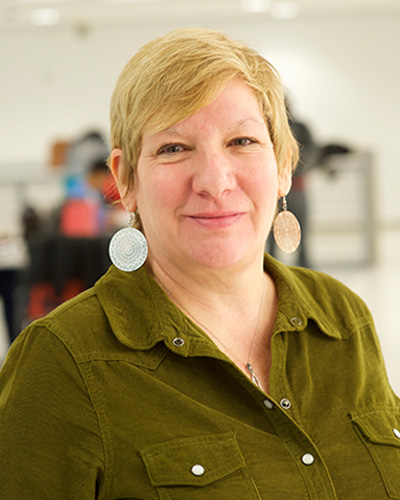Gloria S. McNamara

Professor
Deputy Chairperson
Health Education
EMAIL: gmcnamara@bmcc.cuny.edu
Office: N-798D
Office Hours:
Phone: +1 (212) 776-7213
Assistant Professor Gloria McNamara is co-coordinator of the School Health Education program within the Health Education department at BMCC.
A registered dietitian and New York State licensed nutritionist, she has lectured about health and nutrition issues for the past twenty years. She has a well-regarded reputation in public health programs, having served as director of two New York City Department of Health (NYCDOH) Projects; LEAN and Wellness At Work. Professor McNamara also directed the nutritional supplement program WIC (Women, Infants and Children) at the Maimonide Medical Center, and served as a consultant for both The Partnership for the Homeless and the NYC Office of School Food and Nutrition Services.
Professor McNamara taught at Brooklyn College before joining the faculty of BMCC. A Presidential Scholar whose research focuses on health entrepreneurism, she teaches nutrition and other health subjects. “Health educators not only promote awareness of health issues,” she says, “they help remove barriers and establish supportive environments, enabling individuals to change behaviors impacting their health.”
Expertise
Urban Public Health, School Health Education, Communtiy Health Education
Degrees
- B.S. State University of New York at Oneonta College, Clinical Dietetics,1980
- M.S. City University of New York at Hunter College , Nutrition,1982
- City University of New York – The Graduate Center, Educational Psychology,2009
- Ph.D. City University of New York – The Graduate Center, Educational Psychology – Health Behaviors & Education,2010
Courses Taught
- This is an introductory survey course to health education. The course provides students with the knowledge, skills, and behavioral models to enhance their physical, emotional, social, intellectual and spiritual health as well as facilitate their health decision-making ability. The primary areas of instruction include: health and wellness; stress; human sexuality; alcohol, tobacco and substance abuse; nutrition and weight management; and physical fitness. Students who have completed HED 110 - Comprehensive Health Education will not receive credit for this course.
- This course in health educations offers a comprehensive approach that provides students with the knowledge, skills, and behavioral models to enhance their physical, emotional, social, intellectual and spiritual health as well as facilitate their health decision-making ability. Areas of specialization include: alcohol, tobacco and abused substances, mental and emotional health, human sexuality and family living, nutrition, physical fitness, cardiovascular health, environmental health and health care delivery. HED 110 fulfills all degree requirements for HE 100. Students who have completed HED 100 - Health Education will not receive credit for this course.
- This course examines what the National Academy of Sciences recommends for meeting onea??s nutritional needs. It examines the food, beverages, and supplements that comprise onea??s diet and assesses their impact on health following digestion, absorption, and metabolism. The course is designed to help students make health informed choices regarding nutritional needs and goals.
Research and Projects
- Personality and Weight Loss
Currently investigating in a retrospective study whether successful weight loss strategies are linked to specific personality traits. This study is funded by a PSC CUNY Traditional A grant. - The Effect of Self-Regulated Instruction Across Disciplines
In the process of examining whether self-regulated instruction will lead to greater learning gains across disciplines. This research is currently being funded by the National Endowment for the Arts.
Publications
- Measurement of college students’ beliefs and practices pertaining to sustainable living., International Journal of Sustainability Education 9 (3), 31-46. ISSN: 2325-1212
- Impact of socio-environmental factors on college students’ vending food and beverage purchasing behaviors. , The Food Studies: An Interdisciplinary Journal 3(3), 89-100. ISSN: 2160-1933
- Google it!; Urban community college students’ use of the internet to obtain self-care and personal health Information. , College Student Journal
- The effect of computerized feedback on college students’ dietary self-efficacy, knowledge, beliefs, and behaviors. , The International Journal of Health, Wellness and Society 3(4), 93-100 ISSN: 2156-8960.
- College Students’ Self-regulation of Motoric Flexibility: the Effects of Modeling and Self-evaluation., The International Journal of Sport and Society 3(4), 49-64. ISSN: 2152-7857.
Honors, Awards and Affiliations
- 2014 Presidential Scholar
Awarded a Presidential Scholarship in 2014 to conduct preliminary research on the feasibility of health entrepreneurism as an educational model that may improve academic performance, retention, and graduation rates as well as increase creativity and intelligent risk taking among health education students.

